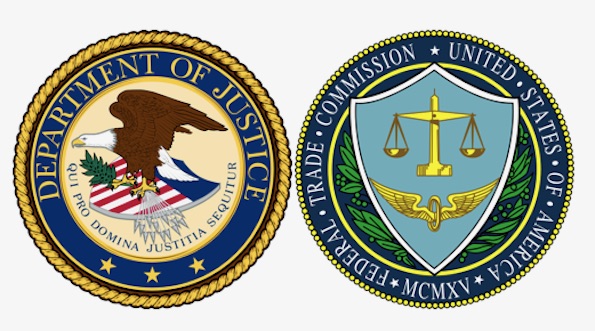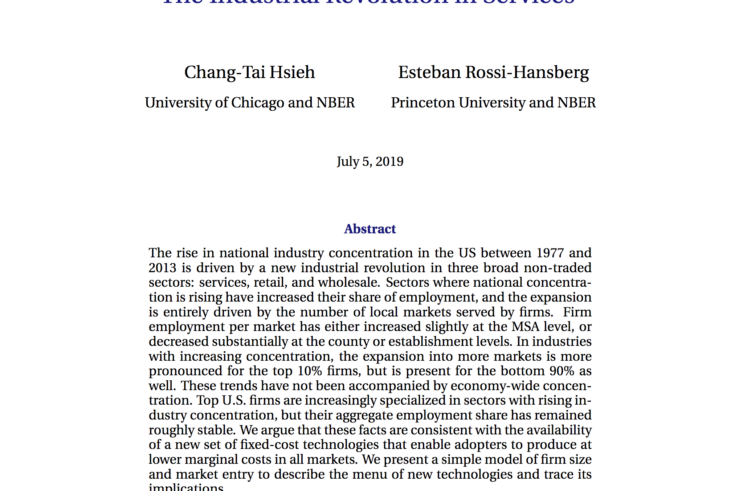Showing results for: “sirius xm merger”
Announcing the TOTM Symposium on the 2020 Draft Joint Vertical Merger Guidelines
Truth on the Market is pleased to announce its next blog symposium: The 2020 Draft Joint Vertical Merger Guidelines: What’s in, what’s out — and do we need them anyway? February 6 & 7, 2020 Symposium background On January 10, 2020, the DOJ Antitrust Division and the Federal Trade Commission released Draft Joint Vertical Merger ... Announcing the TOTM Symposium on the 2020 Draft Joint Vertical Merger Guidelines
The 2020 Draft Joint Vertical Merger Guidelines: What’s in, what’s out — and do we need them anyway?
On January 10, 2020, the DOJ and FTC released their draft 2020 Vertical Merger Guidelines. “Challenging anticompetitive vertical mergers is essential to vigorous enforcement. The agencies’ vertical merger policy has evolved substantially since the issuance of the 1984 Non-Horizontal Merger Guidelines, and our guidelines should reflect the current enforcement approach. Greater transparency about the complex ... The 2020 Draft Joint Vertical Merger Guidelines: What’s in, what’s out — and do we need them anyway?
The Upsides of Collusion and Concentration
Conspiracies and collusion often (always?) get a bad rap. Adam Smith famously derided “people of the same trade” for their inclination to conspire against the public or contrive to raise prices. Today, such conspiracies and contrivances are per se illegal and felonies punishable under the Sherman Act. It is well known and widely accepted that ... The Upsides of Collusion and Concentration
Why the FTC had to Abandon the Duty to Deal Argument Against Qualcomm
On November 22, the FTC filed its answering brief in the FTC v. Qualcomm litigation. As we’ve noted before, it has always seemed a little odd that the current FTC is so vigorously pursuing this case, given some of the precedents it might set and the Commission majority’s apparent views on such issues. But this ... Why the FTC had to Abandon the Duty to Deal Argument Against Qualcomm
Efficient Cartels and the Public Interest Defence – Do They Exist?
The concept of a “good” or “efficient” cartel is generally regarded by competition authorities as an oxymoron. A cartel is seen as the worst type of antitrust violation and one that warrants zero tolerance. Agreements between competitors to raise prices and share the market are assumed unambiguously to reduce economic welfare. As such, even if ... Efficient Cartels and the Public Interest Defence – Do They Exist?
Big Ink vs. Bigger Tech
[TOTM: The following is the fifth in a series of posts by TOTM guests and authors on the politicization of antitrust. The entire series of posts is available here.] This post is authored by Ramsi Woodcock, Assistant Professor, College of Law, and Assistant Professor, Department of Management at Gatton College of Business & Economics, University ... Big Ink vs. Bigger Tech
“Politicization of Antitrust:” An Opportunity
[TOTM: The following is the first in a series of posts by TOTM guests and authors on the politicization of antitrust. The entire series of posts is available here.] This post is authored by Steven J. Cernak, Partner at Bona Law and Adjunct Professor, University of Michigan Law School and Western Michigan University Thomas M. Cooley ... “Politicization of Antitrust:” An Opportunity
Mr. Watson, I Want to See You … About Vertical Mergers and Price Regulation
Jonathan B. Baker, Nancy L. Rose, Steven C. Salop, and Fiona Scott Morton don’t like vertical mergers: Vertical mergers can harm competition, for example, through input foreclosure or customer foreclosure, or by the creation of two-level entry barriers. … Competitive harms from foreclosure can occur from the merged firm exercising its increased bargaining leverage to ... Mr. Watson, I Want to See You … About Vertical Mergers and Price Regulation
What if rising concentration were an indication of more competition, not less?
An oft-repeated claim of conferences, media, and left-wing think tanks is that lax antitrust enforcement has led to a substantial increase in concentration in the US economy of late, strangling the economy, harming workers, and saddling consumers with greater markups in the process. But what if rising concentration (and the current level of antitrust enforcement) ... What if rising concentration were an indication of more competition, not less?
Private Antitrust: What Hipsters Can Learn from Hulk Hogan
Antitrust populists have a long list of complaints about competition policy, including: laws aren’t broad enough or tough enough, enforcers are lax, and judges tend to favor defendants over plaintiffs or government agencies. The populist push got a bump with the New York Times coverage of Lina Khan’s “Amazon’s Antitrust Paradox” in which she advocated ... Private Antitrust: What Hipsters Can Learn from Hulk Hogan
Economics is Dead. Long Live Economics! A Review of The Economists’ Hour
John Maynard Keynes wrote in his famous General Theory that “[t]he ideas of economists and political philosophers, both when they are right and when they are wrong, are more powerful than is commonly understood. Indeed the world is ruled by little else. Practical men who believe themselves to be quite exempt from any intellectual influence, ... Economics is Dead. Long Live Economics! A Review of The Economists’ Hour
On the Antitrust Risks of Four to Three Mergers: A Case Study of a Potential ThyssenKrupp/Kone Merger
Today, Reuters reports that Germany-based ThyssenKrupp has received bids from three bidding groups for a majority stake in the firm’s elevator business. Finland’s Kone teamed with private equity firm CVC to bid on the company. Private equity firms Blackstone and Carlyle joined with the Canada Pension Plan Investment Board to submit a bid. A third ... On the Antitrust Risks of Four to Three Mergers: A Case Study of a Potential ThyssenKrupp/Kone Merger








